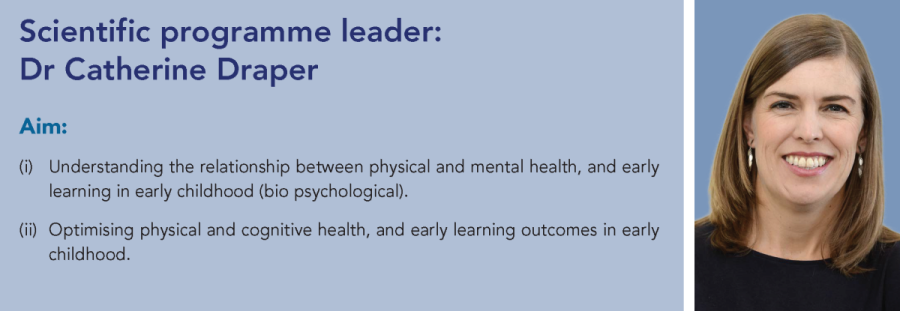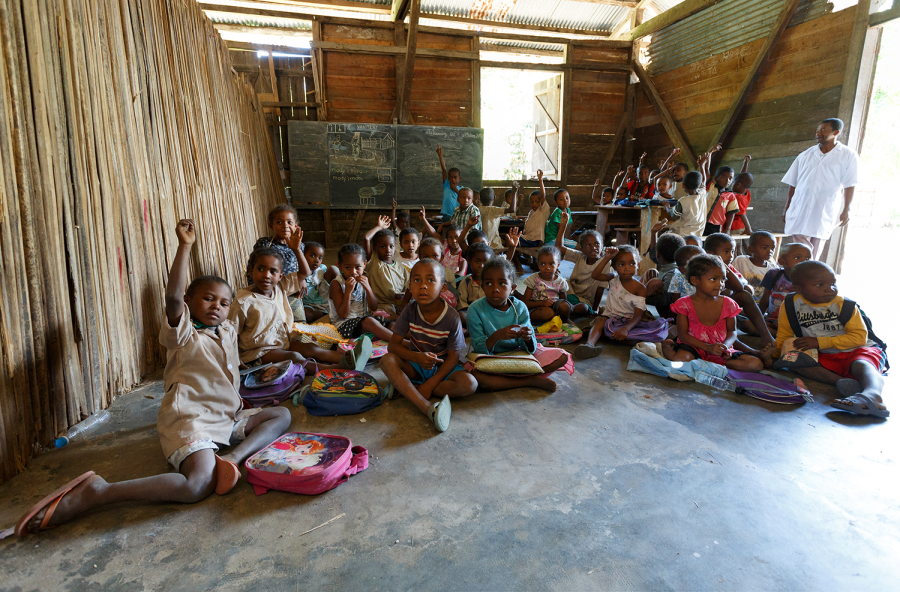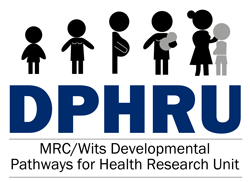

Programme highlights:
- Our research has demonstrated that preschool children across a range of income settings in South Africa have high levels of physical activity, gross motor proficiency and executive function, but school readiness remains a concern in low-income settings. Children in low-income urban settings also appear to be at highest risk of overweight/obesity.
- In impacting on policy our research on movement behaviours in the early years has led to the development and dissemination of contextually relevant physical activity guidelines that have been well received nationally.
- We have demonstrated that it is feasible to intervene in the home environment in low-income settings to promote cognitive development and healthy behaviours and we are developing our research on biomarkers and neuroimaging which could yield new insights into the underlying mechanisms of cognitive development in the early years.
Ongoing research activities:
Challenging socio-economic status (SES): Predictors of good executive functioning in disadvantaged areas of South Africa
Principal Investigator Howard and Co-investigator Draper
This cross-sectional study aims to investigate the concurrent associations of a range of potential factors speculated to promote and constrain executive function in preschool children from low-income South African contexts. It continues previous work that found higher than expected levels of executive function in preschool children in these settings. This study will investigate potential causal factors that have been suggested, but have not been empirically investigated, regarding executive function in LMICs, including individual, familial, and contextual factors.

Using neuroimaging methods to investigate mechanisms underlying executive function in preschool children from a low-income South African setting
Principal Investigator Draper and Co-Investigator Scerif
The aim of this capacity development and feasibility study project is to develop research capacity for the use of electroencephalography in 3 to 5 years old children from low-income South African settings. The project involves an exchange visit by Draper to Oxford and the capacity development of a PhD student.
Evaluation of the dissemination of the South African 24-hour movement guidelines for birth to 5 years
Principal Investigator Draper and Co-Investigator van Sluijs
This research translation and evaluation study involves the dissemination of the South African 24-hour movement guidelines for children from birth to 5 years to ECD stakeholders around South Africa. The objectives of the research component of the project are to evaluate: (i) the feasibility of implementing the dissemination process; ii) the acceptability of the guidelines and the dissemination process for different stakeholder groups (including parents, ECD practitioners, and those involved in dissemination); and (iii) the extent to which the disseminators (those who have been informed of the guidelines) have disseminated these guidelines to end users (as a measure of effectiveness).
International Surveillance Study of Movement Behaviours in the Early Years (SUNRISE): South Africa pilot study
Principal Investigators Draper & Okely and Co-investigator van Heerden
This cross-sectional pilot study forms part of a global pilot study for the International Surveillance Study of Movement Behaviours in the Early Years (SUNRISE). The global SUNRISE pilot study includes approximately 30 countries from all levels of the human development index. It aims to assess the proportion of 4-year-old children sampled in participating countries who meet current guidelines on physical activity, sedentary behaviour and sleep for this age group (0-5 years old). The study’s aim is to assess the extent to which meeting/not meeting these guidelines is associated with certain health and developmental outcomes.


